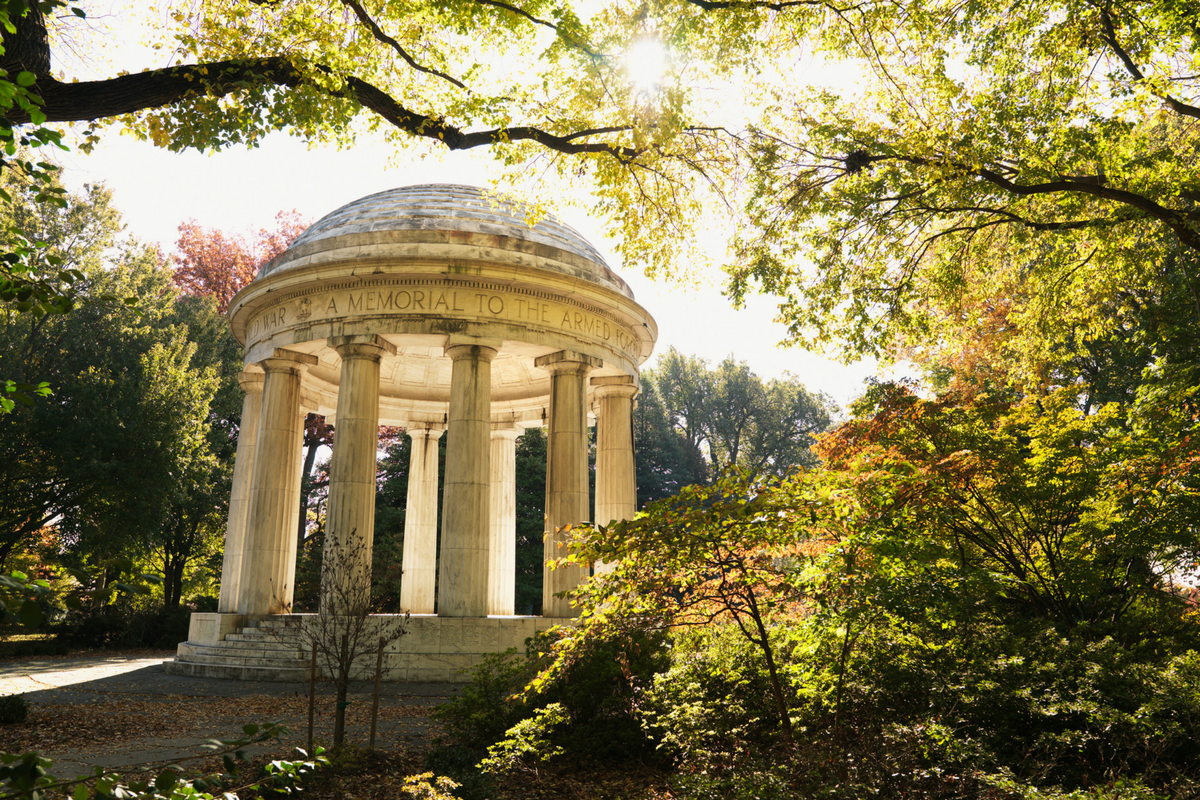Over the last several months, readers have spoken to me about the topic of free speech. The last election cycle was as much or more polarizing than any other of this generation. Protests after the election, before the inauguration, and during the still young tenure of our new President seem to have turned at least parts of our country into a state of perpetual turmoil.
In other words, if conversations at Thanksgiving dinner were difficult, imagine the 4th of July family reunion!
This whole scenario came into focus for me as I followed the upheaval at the University of California at Berkeley. Milo Yiannopoulos who, until recently, was senior editor of Breitbart News, self-described “cultural libertarian,” “free speech fundamentalist” and all around critic of what he deems the “regressive left” was scheduled to give a speech at UC, Berkeley.
For my younger readers, Berkeley was one of the two or three epicenters of the 1960s social unrest. It is the center of cultural liberalism and one of the best research Universities in our country—a place where, in theory, ideas are to be exchanged—freely. However, that didn’t happen at Berkeley.
According to the Chronicle of Higher Education, though Berkeley administrators “made a concerted effort to allow the speech to take place,” the violence and mayhem generated because of Yiannopoulous’ presence forced cancelling the event.
Similar cancellations in response to a variety of speakers at places like Brandeis University, New York University, Middlebury College, and Williams College have prompted academics like Rafael Walker at the University of Pennsylvania to ask:
“When [the] academe gets in the business of suppressing voices that it doesn’t like and limiting students to only those views that it broadly sanctions—no matter how popular those views are in the culture at large—is free speech safe anywhere? Moreover, do we do our undergraduates any favors by shielding them for the ‘deplorable’ views of the big bad conservatives beyond the ivory tower?”
In his book, U & Me: Communicating in Moments that Matter, John Stewart’s chapter on personal politics provides some helpful direction about how to freely speak in challenging moments—maybe even during family gatherings.
One important bit of advice is to determine, in advance, whether our purpose is “understanding” or “persuasion.” According to Stewart, the reality is that most people with strong political agendas don’t really want to have a conversation with somebody who has a different point of view.
He notes, “[a]lmost all of Rush Limbaugh’s listeners share his views, and the same is true of those who watch Bill Maher.”
On the other hand, genuine understanding requires a completely different orientation. Leaders whose focus is on general understanding, who really want to work at helping bridge a variety of cultural and socio-economic divides, may want to consider following the ground rules that Stewart provides:
- “Stay engaged means committing to remain morally, emotionally, intellectually and socially involved in the dialogue. It means not to let your heart and mind “check out” of the conversation while leaving your body in place.
- Speak your truth means being honest about your thoughts, feelings, and opinions and not just saying what you believe others want to hear. People don’t often speak their truth about a political topic because they’re afraid of offending, appearing angry, or sounding ignorant.
- Experience discomfort follows naturally. This ground rule acknowledges that, because politics is generally so polarized in our society, serious political conversations necessarily create discomfort for many participants.
- Expect and accept non-closure means that your goal for the conversation should not be, as I mentioned, to persuade the other person your beliefs, or to solve the political problem you’re discussing. The point of the talk is the understanding, acceptance, and respect that, under the best conditions, the talk itself can produce.”
[bctt tweet=”Understanding your political counterpart: Stay engaged, speak your truth, experience discomfort, accept non-closure.” via=”no”]
Leaders who lead within their sphere of influence will never regret practicing the Stewart ground rules. As Stewart notes, “personal political communication is difficult. Moments that matter don’t occur very often in the political communication that you see and hear the most about. But they can happen between family members and friends who approach their conversations mindfully and reflectively.”
And to that I will add…Amen.











Universities should absolutely be proponents of free speech. But students and others have the right and duty to protest (peacefully) against speakers who are pseudo academics that advocate for prejudice and violence. Speakers who don’t understand or pursue the 4 points.
Ben,
Thank you for sharing your thoughts. I appreciate your doing so.
Jeff
Dr. Bullock,
Your citation of “The Chronicle of Higher Education” relating the UC Berkeley’s Administration supporting the speech belies the fact Berkeley (referred to in the past as Berzerkeley) Administration conspicuously chose NOT to prepare for extra security to protect their own (actually State of California) property and their on campus community and attendees to the lecture. The total lack of foresight and understanding, or unspoken support of, the virulent violent criminal protest culture that exists on that campus and within that community. The ability of masked ninja clad “outsiders” to violently clash with and injure the student protesters and cause fires and breaking glass walls and, notably the box office booth (cash here????) was directly attributable to two things: A culture of ascribing any disagreement to the campus consensus ideology as “hate.” The contemporary tactics of protest by characterizing persons NOT protesting as “haters” and are, along with their institutions’ property as legitimate targets for violent attacks and destruction. Deferring to any publication that chooses to support the malignant neglect of a Major University’s Administration to passively tolerate and fail to prepare with campus and city law enforcement and public safety agencies, as supportive evidence of their proper execution of their duties is naive, and I believe is either disingenuous or reveals an attitude of agreement and support for their inaction. This protest was predictable, had precedent at other institutions. Lack of law enforcement presence and reserves and other preemptive security was negligent and quite typical of the UC’s ideology and politically correctness bound Administration system wide.
Your thoughts on discussion guidelines are well received and appreciated. But it is time to stop excuseing the failure to promote and maintain campus security under the guise of academic privilege and freedom, while simultaneously failing to create a secure venue for both the speaker and the audience. Protest is in the greatest tradition of the academy. Failing to protect the venue, attendees and the protesters from apparent “outside actors,” when it was clearly organized and predictable is a major failing of those entrusted (or politically appointed) with the security and credibility of what was once a great university.
As a grandparent, I would strongly urge my children to strongly consider these failures in the face of a sure threat before they would send my grandson to that University. And, Dr. Bullock, your benign referral to the event and its Administration support by a major journal on Administration, raises my doubt about how well you are prepared to make the proper response to a potential threat if it ever arose at UD.
At the level of top University Administrators, it is the top priority to balance tolerance and encouragement of free speech with a concurrent duty to protect the University and Community from the possibility (shown at Berkeley and other Colleges and Universities) of anarchistic violence and destruction.
Craig,
Thank you for you extensive response. I can assure you that our University community is well-prepared. I say so because we try to be much more proactive than reactive, and we work extra hard to build relationships with each other and communicate.
Thank you.
Thank you for sharing this. It is important to remember that we need to be open minded when discussing such polorizing topics. Especially with our loved ones. We will not move forward collectively as a society until we start crossing the lines of our beliefs in order to let others in. We will not find common ground unless we seek it.
I will be attending the alumni event in Denver in a couple of weeks. I look forward to seeing you, Sir!
Tiara,
I look forward to meeting you as well. Thank you for sharing your comments and for reading the blog.
It should be noted, however, UC Berkeley spokesperson Dan Mogulof credits the “Black Bloc,” not a student-led organization, as the agitators for the destruction on campus which eventually led to the cancellation of the event. This group is well-known in Oakland for riots. The event occurring on that campus with Yiannopoulos may have happened regardless at another venue.
Michele,
Thank you for your thoughtful and insightful response.
I wish more people in academia would speak out like this. I fear for our divided country.
Harold,
Thank you for reading the blog and for your remarks.
A brief review of the previous comments and responses reveal engagement, honesty and concern on all sides of the topic.
.Thank you Dr. Bullock for having the courage to open the door to discussion of our fundamental right of free speech. Many would prefer to “Let sleeping dogs lie.”…”Don’t rock the boat.” Etc Etc.
Thank you for engaging UD and it’s Alumnae in this most difficult but incredibly important discussion..
May our conversations be honest but civil, minds open without fear and listening and analysis more apparent than persuasion and discord.
Don Neely C57, S62
Don,
Thank you for your response and encouragement–to all of us!!
I concur with Mr. Neely’s comments and applaud this medium for open discussion. As a child of the Sixties, I thought the best thing coming from the Trump Administration was the end of social apathy and people actively engaging their government again. That was until I had a conversation with an acquaintance this passed weekend, who stated the activation and anger among so many Millennials about the Presidential election, really is borne from this generation’s lifelong experience of no winners/losers suffering their first real defeat. The independent-libertarian side of me wonders…
William,
Thank you for reading the blog and taking the time to offer your thoughts!
Important words at a critical time – thank you
Charlie
Thank tou for your comment and for engaging the blog!
Stewart’s guidelines for such conversation seem to require participants to be mature, self-reflective people whose agenda is understanding “the other” and cooperating in community-building ways that are perhaps best outlined by the famous prayer of Francis of Assissi. (that I may not so much seek … to be understood as to understand …) The absence of the verb “listen” from his “rules” is an awkward lacuna. It may reveal how truly difficult the reconciliation is between independence and peace, free speech and open listening. Thanks for standing in the eye of the storm, Dr. Bullock.
Carol,
Thank you for reading the blog and sharing your comments. Your observation about a lacuna is appropriate but it’s not Dr. Stewart’s lacuna, it’s mine. “Listening” is at the core of John’s book, and most of his research going back as far as I can remember. I hope that this helps. Thank you!
I share the concerns about the attacks on free speech that seem to be occurring at more and more universities. It would seem that if we lose that freedom at universities, where freedom of speech and thought are core values, it will more quickly be lost elsewhere. By banning speakers of whatever persuasion, university presidents are as guilty as the post-high schoolers that populate the schools, for curtailing free speech. Let us hope and pray that this (hopefully temporary) period will soon fade into the past, and schools can get back to their role of supporting deep inquiry.
Jerry
Thank you for reading the blog and posting your comments. You’re right: if we lose that ability/self-discipline on a campus, it’s much easier to lose the privilege in the larger culture. I appreciate your insight and sharing.
Hi Jeff,
Thank you for sharing these words with us. On a personal note, I needed the positive direction you gave. Not only do your words inform me regarding my own behavior, but help me to recognize and peacefully respond to the behavior of those with whom I communicate.
Jen Johnson C 2001, S 2004
Jen
Sorry this is so late. Thank you for your comments, and for reading rhe blog.
Jeff